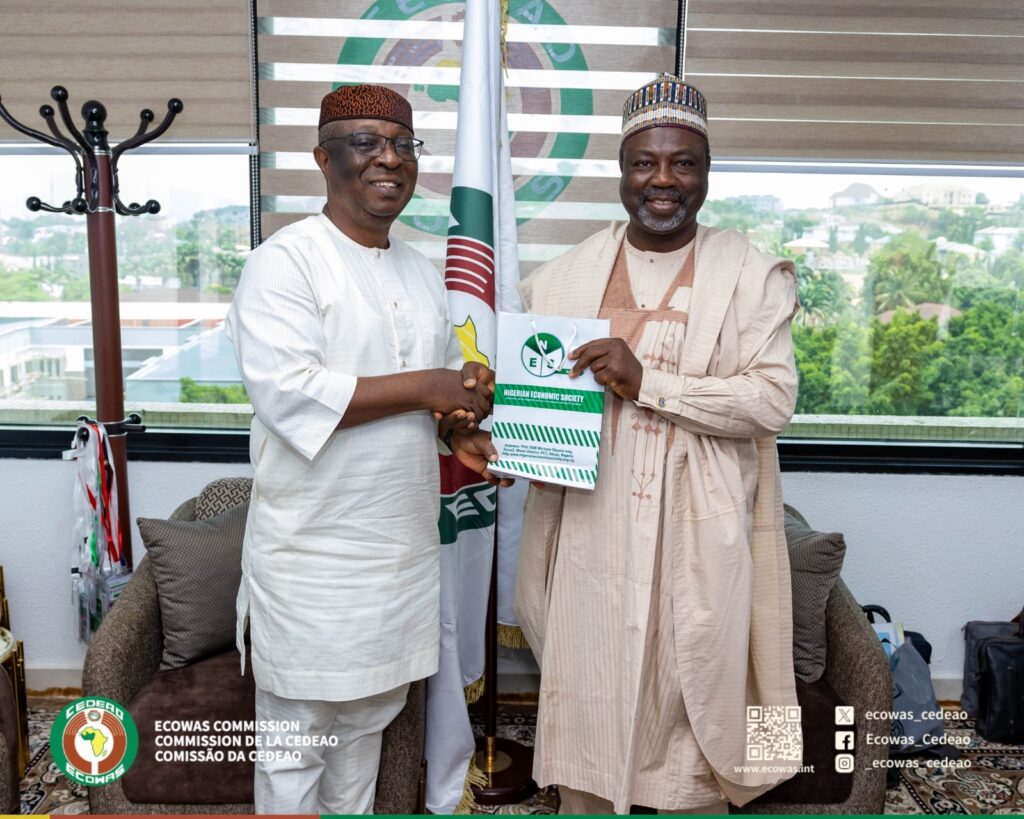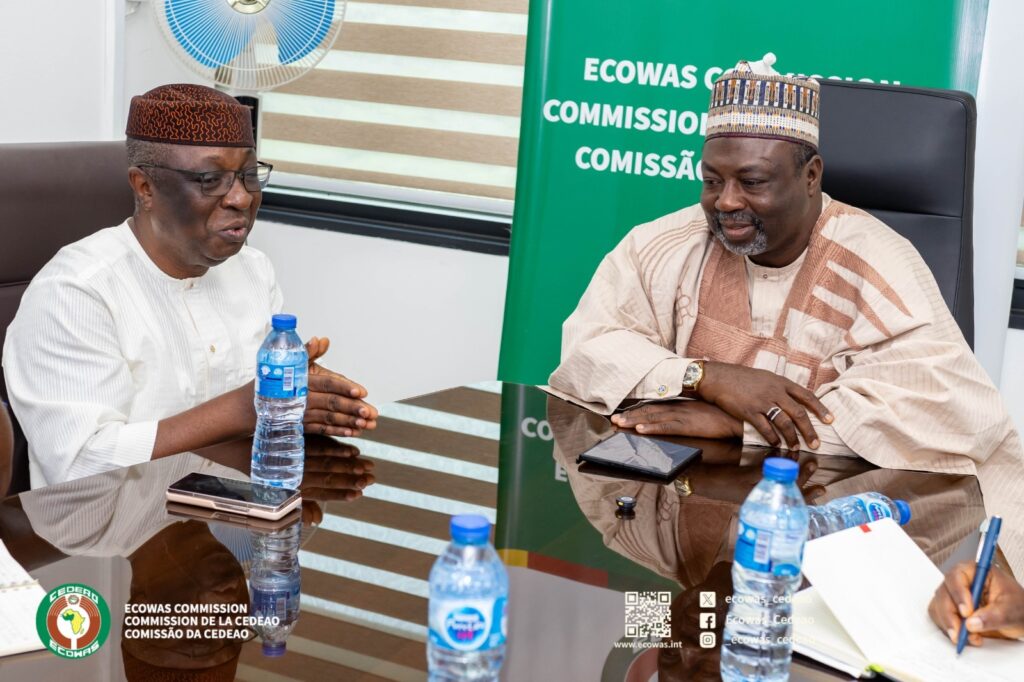Nigerian Economic Society President Visits ECOWAS Commissioner, seeks Collaboration to promote Regional Economic Integration.
By Raymond Enoch
Professor Adeola Adenikinju, President of the Nigerian Economic Society (NES), and Mr. Solomon Terkura Mathew, Head of the NES Secretariat, paid a courtesy visit to Professor Nazifi Abdullahi Darma, the Commissioner for Internal Services (CIS) at the ECOWAS Commission in Abuja.

The visit marked an important step towards fostering closer collaboration between Nigeria’s economic body and the regional governance structure of ECOWAS.
The meeting opened with Professor Nazifi Abdullahi Darma offering a comprehensive overview of his academic background and professional journey, which highlighted his deep commitment to regional development. He elaborated on the functions of the ECOWAS Commission and specifically detailed the pivotal role of the Department of Internal Services, which he leads. The department, according to Professor Darma, plays a crucial role in the effective functioning of the ECOWAS Commission by ensuring smooth administrative operations across the region.

Professor Adenikinju, who has been at the helm of NES for several years, acknowledged the significance of ECOWAS as a regional powerhouse and underscored the need for stronger economic integration within the West African region. His visit was part of NES’s ongoing efforts to foster collaborations with regional organizations that shape the economic and developmental policies affecting West Africa.
The discussion between the two leaders centered on possible areas of cooperation between NES and ECOWAS, especially in the context of regional economic development, policy advocacy, and research initiatives. Both sides expressed the desire for a continued partnership that would benefit both institutions, ensuring that they work together to address the economic challenges faced by the region.
The meeting concluded with mutual expressions of commitment to enhancing the regional economic framework through shared knowledge and strategic partnerships. As the meeting wrapped up, the importance of such collaborative efforts was underscored, particularly in fostering economic resilience and sustainable growth within the ECOWAS region.
This visit signals a positive step toward deeper economic ties and a shared vision for the future of West African development. It is clear that, through continued cooperation, both NES and ECOWAS aim to build a more integrated and economically prosperous West Africa.









